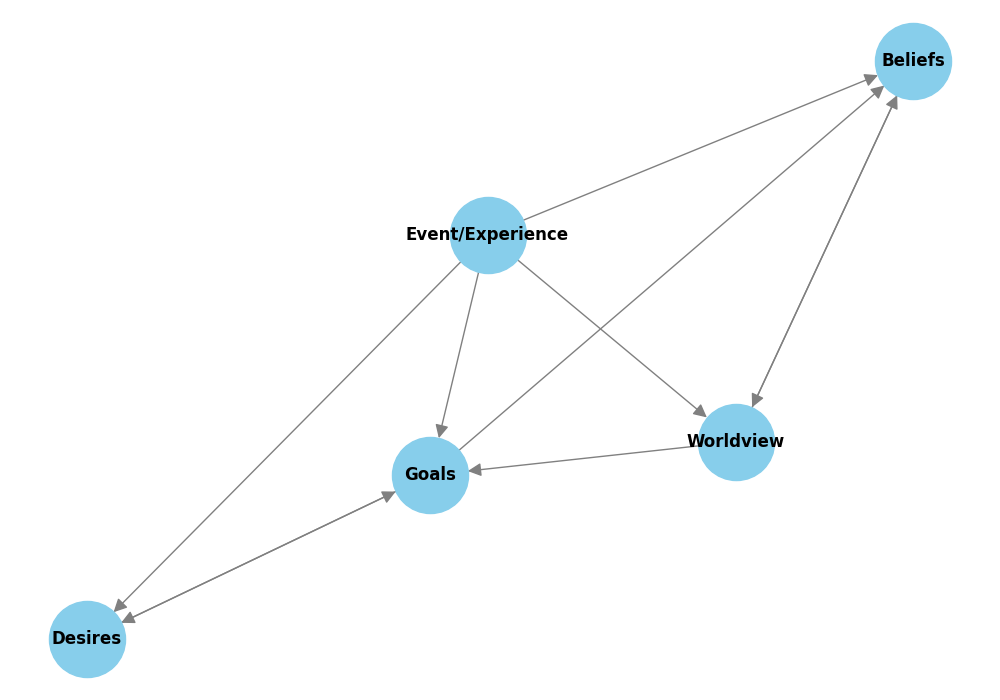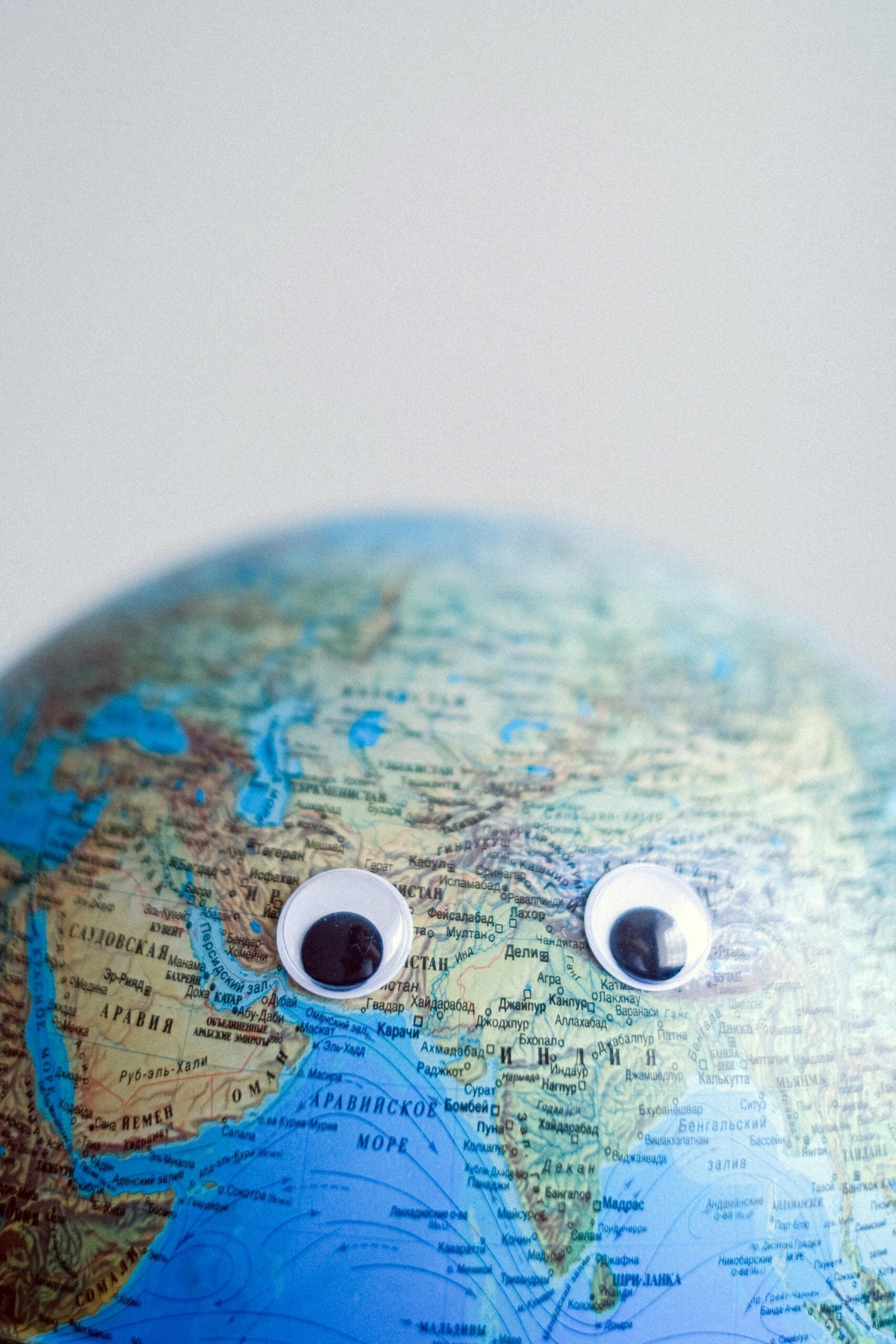As I traverse the labyrinth of life, I find myself drawn to the complexities of the human psyche. The complex interplay of beliefs, worldviews, goals, and desires that shape our perceptions and guide our actions. I invite you to embark on a journey of self-discovery using introspection and inquiry. Let’s delve into the depths of our consciousness to unravel the mysteries of our inner landscape.
Beliefs: Shaping Our Reality
Beliefs are the bedrock upon which our perception of reality is built. They are the deeply ingrained convictions that color our thoughts, shape our attitudes, and inform our behavior. Whether inherited from cultural traditions, instilled by authority figures, or forged through personal experience, our beliefs serve as the lens through which we interpret the world around us.
Origin of Beliefs
beliefs are the product of a dynamic interaction between genetic predispositions and environmental influences. Neither nature nor nurture alone can fully account for the complexity of belief formation. We are born into a belief system, raised in it, then we grow within it. These three stages can each have different belief systems. For instance, a person can be born in New York City, NY, USA, raised in Ottawa, ON, CA, and then come back to New York as an adult. Then, the same person decides to go live with their family in another country or state.
Nonetheless, it is important to note that the most impactful time is from birth to early adulthood. During this time, we learn about ourselves, our environment, and the world. Following Erik Erickson’s Stages of Psychosocial Development, a human goes through 5 of the 8 stages by the time they are 18 years old and starts the 6th at 18 years old. This means most of your strong beliefs are acquired during your childhood and adolescence.
Beliefs constitute a great deal in identity. What we believe and what we believe in serve a lot in how we navigate life and connect with others. You more than likely want to be around people with strong ties to your religion and beliefs, especially parents. This doesn’t mean hate or disgust towards others. It’s about feeling that you belong, which is in the middle of Maslow’s Hierarchy of Needs. Briefly, we learn and adopt the beliefs of the people close to us, they become part of our identity and our way of understanding and explaining everything. Our genetic predispositions and neurology make us more or less receptible on certain beliefs.
Worldviews: The Lens Through Which We See the World
Embedded within the fabric of our beliefs lies our worldviews—a comprehensive framework that encompasses our understanding of existence, morality, and the nature of reality itself. It is the sum total of our beliefs, values, and cultural perspectives, shaping not only how we perceive the world but also how we interact with it.
Our worldview is like our eyes in a sense. The word itself is a combo of two words, “world” and “view”. It is originally a German word (Weltanschauung in case you’re interested). The second part, “view”, is, in my opinion, the defining part of the word. It is how you view (or perceive) the world. This doesn’t only mean what you see with your eyes but also your mind. As mentioned above, this involves more than your beliefs. Your worldview is your way of sensing, thinking, and acting on all stimuli.
Example Scenarios
When navigating the world, we see, feel (physically), taste, hear, smell, and have sudden intuitions. Using our knowledge of the world, which is part of our worldview, we perceive these signals, analyze, interpret, and then react to them. Imagine two roommates. One of them was raised in a society that believes the superstition that putting your clothes inside-out would attract snakes to you (Guinea). The other one grew up in another community where they believe that putting your clothes inside-out attracts good luck (Hungary). If those two share an apartment and one of them accidentally wears their clothes inside-out while going for a walk at night, that would be a very confusing, maybe funny, situation. The former would be scared of going out on that walk and facing a snake, while the latter would be excited. The ways their eyes see the inside-out clothes, how their brains register them, the feelings throughout their bodies, and how they react physically, mentally, emotionally, and vocally to the same situation would be totally different.
Similarly, a person who directly or indirectly experienced violence will not see and interact with strangers the same way a person who never experienced violence would. Your worldview is a critical component of your identity and plays a huge role in your perceptions and actions.
Expand Your Worldview
The benefits of expanding your worldview are priceless. It enriches both your personal and professional life. You’re looking at enhancing your personal growth, relationships, and overall well-being. Here is a short list of advantages:
- A better understanding of the world
- Improved problem-solving skills
- Self-awareness
- Flexibility and adaptability
- Broader perspective on global issues
- Stronger social connections
- Cultural competence
- Open-mindedness
- Tolerance and empathy
How can you expand your worldview?
- Travel
- Reading
- Meaningful conversations
- Attending community events (as a volunteer if you like)
- Identifying your own biases and those of your community
Be curious and you’ll find so many ways to understand the world. Social media is also a great resource. But when doing your research, understand the biases of your sources. For instance, a video of a Canadian showing Canadians can be more in-depth than an Australian showing Canada. Now, an Australian would know how to explain cultural differences and similarities to another Australian better. A person who has bad experiences in Canada may have a different view of the country. Everyone explains things as they perceive them.
Goals: Charting the Course of Our Journey
Goals are the compass that guides our journey through life, providing direction, purpose, and meaning to our existence. Whether striving for personal fulfillment, professional success, or spiritual enlightenment, our goals serve as the milestones that mark our progress and define our aspirations.
A lot of factors come into play in goal creation. It is a combination of nature and nurture. In other words, your social, psychological, and biological aspects are all involved when you set goals. For each individual, these factors form the reason why they have one goal versus another. It is a very complex and multifaceted process. Personality, life experiences, and knowledge create another layer of differences in goals from one person to another in any given situation. For example, siblings can have a lot of similarities in their life experiences and biology, but they are more likely to have a very different list of goals in life. Goal creation is influenced by various intrinsic and extrinsic factors.
In general, we set goals to fulfill biological needs, psychological motivations, and social expectations. When you examine where the goals coming through your mind come from and why, you can gain insight into what drives your motivations and steer your life with more fulfillment and purpose.
Read more about Goals and Goal Setting Techniques for in-depth analysis of goals.
Desires: The Fire That Burns Within
Desires are the fuel that drives our ambitions, igniting the flames of passion and propelling us forward in pursuit of our dreams. From the simplest pleasures to the loftiest aspirations, our desires shape our motivations, fuel our ambitions, and inspire us to reach for the stars.
Desires serve as very powerful motivators. They originate from the same complex combinations of factors as goals. The main difference is that goals are more precise, structured, and external, while desires tend to be more emotional, broad, and internal. Understanding the nature of desires, how they form, and their impact on behavior and well-being can help individuals manage their aspirations more effectively.
Check out the post about Desires to learn more.
How Beliefs, Worldviews, Goals, and Desires Impact Our Lives

1. Beliefs and Worldviews: Beliefs shape an individual’s worldview, providing a foundational perspective through which they interpret their environment.
2. Worldviews and Goals: An individual’s worldview influences their goals, guiding what they aim to achieve based on their understanding of the world.
3. Goals and Desires: Goals are often driven by underlying desires, representing concrete steps or outcomes that fulfill these deeper wants.
4. Desires and Goals: Desires motivate the formation of goals, providing the emotional drive behind what an individual seeks to accomplish.
5. Goals and Beliefs: Achieving or striving towards goals can reinforce or alter an individual’s beliefs, depending on the outcomes and experiences encountered.
6. Worldviews and Beliefs: An evolving worldview can lead to a reassessment and modification of one’s beliefs.
7. Event/Experience and Beliefs: Significant events or experiences can challenge and reshape beliefs, prompting new ways of thinking.
8. Events/Experiences and Worldviews: New experiences can broaden or change an individual’s worldview, affecting how they interpret future events.
9. Event/Experience and Goals: Events can influence goals, either by presenting new opportunities or by shifting priorities.
10. Event/Experience and Desires: Experiences can intensify, diminish, or redirect desires based on new information and emotional responses.
Conclusion
It is very easy for adults to forget that we came to this world without knowledge of it. We inherit biological, psychological, and genetic aspects from our parents. The culture, socioeconomic, educational background, religions, etc. heritage are only felt as we grow. Who you are neither starts with nor is limited to what you look like, where you live, or your profession. It is important to understand the underlying factors that make each of us unique, different, and at the same time similar to the rest of humanity. It is fundamental to take into account the non-physical parts (a few are listed here) of a human to fully learn, understand, and connect with them. The most important human is to do that with yourself.
As most people say, “it is the small things…”. The little things that we do without even realizing we do them come from the most profound parts of who we are. Everything is connected, we aren’t perfect, but we are perfection. Our beliefs shape our worldview, coloring our perceptions and shaping our interactions with the world around us. Our goals and desires, in turn, are informed by our beliefs and worldviews, reflecting our deepest values, aspirations, and priorities.

